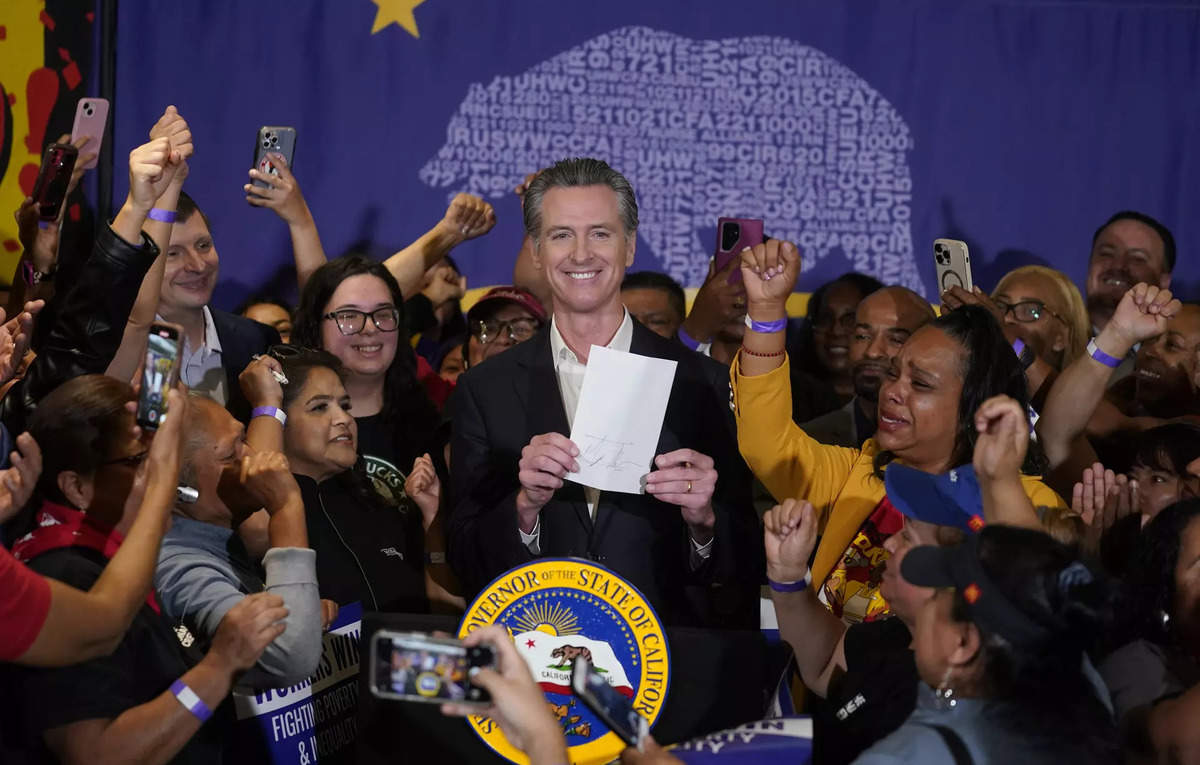California, known for having some of the strongest minimum wage laws in the United States, is currently facing a significant surge in minimum wage violations, adversely affecting a substantial portion of its workforce. This troubling trend has been particularly pronounced in major metropolitan areas such as Los Angeles, San Francisco, San Diego, and San Jose. A recent study conducted by Rutgers University’s School of Management and Labor Relations (SMLR) has shed light on the extent and impact of these violations, revealing a disturbing increase that has cost workers billions of dollars annually.
According to the study, minimum wage violations in California have more than doubled, with workers in major metro areas losing up to $4,000 each year due to wage theft. This finding underscores the urgent need for robust labor enforcement. Professor Janice Fine, the director of the Workplace Justice Lab at Rutgers, emphasized this point, stating, “This is the time to be strengthening — not weakening — labor enforcement.”
Despite California’s reputation for strong state and local minimum wage laws, the study highlights a significant gap between legislation and actual enforcement. Professor Fine pointed out that “too many low-wage workers are not receiving the pay they are entitled to,” which is a stark reminder of the challenges in ensuring that laws translate into real-world protections for workers.
The Rutgers study, which analyzed federal data collected from 2014 to 2023, found that the year 2023 alone saw a 56% increase in reported minimum wage violations. This alarming rise affected nearly 1.5 million workers, with a disproportionate impact on Black and Latino workers and young people aged 16-24. These demographics are particularly vulnerable due to systemic inequities and a lack of resources to advocate for their rights.

Among the most egregious violations were those affecting groups such as childcare workers, nannies, and home healthcare professionals. These professions, often characterized by informal work arrangements and low visibility, are especially prone to exploitation. The prevalence of wage theft in these sectors highlights the broader issue of labor exploitation in the gig economy and other low-wage industries.
The increase in minimum wage violations coincides with recent legislative changes aimed at improving workers’ pay. On April 1, California implemented a fast-food minimum wage hike from $16 to $20, making it one of the highest in the country. However, the Rutgers study suggests that legislative measures alone are insufficient without effective enforcement mechanisms.

The potential repeal of the Private Attorneys General Act (PAGA) adds another layer of complexity to the issue. Enacted in 2004, PAGA empowers employees to file lawsuits for labor code violations on behalf of themselves, other workers, and the state. This law has been a critical tool for workers seeking to hold employers accountable. However, a ballot initiative in November could revoke this ability, potentially weakening protections for low-wage workers.
If business and labor groups do not reach a compromise by the end of June, the issue of PAGA’s repeal will be presented to California voters in November. This development is of significant concern to labor advocates, who argue that PAGA is essential for maintaining worker rights and ensuring that employers comply with labor laws.
Read More: 5 Buffet Restaurants in New Jersey Where You Can Eat as Much as You Want!
Coming Soon: “Suspense Day” and Its Impact on Proposed California Laws!
Breaking News: Jaws Actress Susan Backlinie Passes Away at Age 77!
The Rutgers study’s findings highlight the urgent need for California to not only maintain but strengthen its labor enforcement efforts. Ensuring that workers receive their entitled pay is crucial for addressing economic inequality and protecting vulnerable populations. As Professor Fine aptly stated, now is the time for stronger, not weaker, labor enforcement to safeguard the rights and livelihoods of California’s workforce.

